I’m Going Back To Korea and I’m Terrified of Fat Shaming.
Seoul.
By the time you read this email, I will have landed in South Korea.
It will be the first time visiting Korea since before the pandemic (I went back with my parents in 2019). More significantly, it’ll be the first time I’ve been to Korea with my entire family since 1995. My mom, dad, brother, sister-in-law, nephew, and my husband will all be in Korea together. It just so happens that one of my cousins will be getting married while we’re there and as a result, several of my cousins (on my father’s side) will also be in attendance.
In other words, this will be one of the biggest family reunions we’ve ever had.
As many of you may remember, we decided to visit Korea this year to celebrate my father’s 80th birth year. We picked this destination in January. Since then, we have been planning various activities, dinners, assorted mini-trips (e.g., we’ll be spending 3 days in Jeju) and I have been scouring HappyCow for vegan restaurants and food options. I’m a planner, and as such, I have prepared a 3-page spreadsheet containing a detailed itinerary that’s designed to maximize our time together. Why? The thing I hate the most is spending money to pay for a trip and then wasting said money answering the question:
“What should we do now?”
Another thing I’ve been doing since we chose Korea?
Dieting.
I discussed this in last week’s newsletter, but I did not go into what sparked this recent adoption of the regiment that has resulted in a significantly slimmer me. But, there is no greater motivation for losing weight than a trip to my parents’ native country.
When I was 16 years old, I spent the summer in Seoul. I wasn’t “stick skinny,” by any means, but I also wasn’t what most people would consider overweight (though my parents were still on me about losing those pesky “10 pounds”). To put this in perspective, only, I was 5 feet tall and 110 lbs, and fit comfortably into a size 4 dress. To my absolute horror, when my cousin took me shopping at some of her favorite clothing stores in Seoul, we could not find my size. Not only was I completely unable to fit into anything belonging to my extremely stylish 20-year-old cousin, we had to visit dozens of stores before we finally found one that had a pair of pants that I could zip up around my hips.
In Korea, I was considered “Extra Large.”
My aunts openly ridiculed me for being unable to find clothes that fit me. This sort of thing continued throughout my adult life. In college, after I’d gained my “Freshman 15,” when one of my aunts came to visit me and my parents, instead of saying “hello,” she literally greeted me at the door with “OMG you’ve gotten so FAT!” On Thanksgiving one year, the first words out of my grandmother’s mouth when I walked through the door was, “Well, I see your ass has somehow gotten even larger…”
By now, you may think that I was surrounded by terrible, evil women who enjoyed making me feel awful, but it’s quite the opposite. For them, fat shaming was a way of showing tough love. The fact that they did so with jokes and jabs was a sign of their affection–making light of my heaviness (no pun intended) was far better than the alternative, i.e., the strategy my parents employed to get me to lose weight: near-constant badgering about how I was too big, suggesting that I not eat my own birthday cake, and telling me they thought it best not to accept a plane ticket to Korea as my college graduation gift, because I was too fat. The fact that I readily accepted my parents’ recommendation and chose to forego a trip to Korea–something I’d been genuinely excited about–speaks to just how normalized this behavior was in my universe. And just how internalized this narrative became for me.
Fat shaming is practically an Olympic level sport in Korea. Below is a pic from a subway station in Seoul:

In Korea, this is normal. Maybe it doesn’t look like a big deal, at first, but we would never see signs like the above in the United States. More to the point, it evinces a total lack of sensitivity to or concern for those who are struggling with their bodies and the derisive scrutiny they elicit.
A 2021 survey conducted by the Korean Society for the Study of Obesity among 1,000 people aged 20 to 59 revealed that “58 % agreed or strongly agreed that obese people look lazy, while 56 % also agreed or strongly agreed that obese people seem to lack willpower and self-control.” According to this study, between Korea, the United States, and China, women in South Korea demonstrated the “highest levels of body dissatisfaction and disordered eating.” The ideal BMI for Korean women is 18.4 (see this study), which is considered underweight and possibly malnourished.
There are now hundreds of viral videos discussing fatphobia in Korea, including this TikTok I found particularly insightful. In it, the creator describes just some of the comments she received about her body while in Korea from both strangers and non-strangers:
“[Your] thighs look so big they look like they’re going to explode.”
“[You] shouldn’t wear a bikini in the summer because [you’re] too fat for it.”
“[You] should eat less because [your] stomach is starting to look a little bit big.”
“[You] must be eating good nowadays because [you’re] gaining a bunch of weight.”
According to the creator, she received these comments in just the last 2 weeks.
What I found particularly poignant about this post was when the creator confessed, “Now people say that comments are made about weight in Korea because it’s out of concern … and maybe it’s because I’m sensitive but hearing those comments are bad for my mental health.”
You may have been one of those persons who said that the above sign in the subway or any of the comments made about the TikToker’s weight were “fine.” But the truth is, the absurd beauty standards of Korea and the epic fat shaming are causing mental health problems. According to this study, in Korea, there is an observable correlation between a person’s BMI and depressive tendencies. Interestingly, though, “concern about being ‘obese’ (비만) is a significant mediator among both men and women who are classified by their BMI as overweight/obese, and among women classified as ‘normal,’ so that greater concern led to a stronger relationship between BMI and depressive effects.”
In other words, it isn’t actual obesity that necessarily catalyzes depressive effects. Rather, it’s the concern of being perceived as overweight that can be “bad for [one’s] mental health.” This renders people–particularly women–especially vulnerable to the effects of fat shaming: “While the case of body concerns in South Korea—where cosmetic surgery is relatively normalized and weight concerns abound even while obesity is relatively rare—may be extreme at first glance, this clarifies the mechanism through which extreme social norms driving an imagined biology (‘being too fat’) can be powerful in shaping actual biology on another dimension (depression/depressive symptoms).” (Id.)
Indeed, according to a survey conducted in 2023, “perceived weight” has been linked to one of the leading causes of death in Korea:
Suicide.
For these reasons, I feel a little bit like I’m girding up to wade into a dark, scary jungle, as I continue to populate my spreadsheet with vegan eateries, Buddhist temples, and national parks. Have I done enough to camouflage myself, so that the gaze I fear will slide past me without accusation? And if not, have I developed a thick enough skin to withstand that gaze, perhaps even to answer it? What would I do… no. What will I do when a family member cracks a joke about my “explosive” thighs, my jiggly belly, my “moonface”?
I honestly don’t know. I guess we’ll have to wait and see whether anything has changed since I was 16 years old and laughing along with the women who taught me to hate my body.
Thoughts on this week’s newsletter?
Around The Horn
In response to last week’s newsletter, Why It’s So Hard to Maintain Your Weight Loss:
Gwen says:
May 28, 2024 at 10:35 am
“I can relate to so much of this. I have always felt like I was overweight. After working with a vegan trainer I was finally starting to get to what I believed was my ideal weight. I developed an eye issue and was told no working out for six weeks. I’ve gained 15 lbs letting myself eat whatever I want and not exercising. It really made me think about why I want to lose weight. I want to be happy with just what my body is capable of doing or how I feel and not just how it looks. Right now I’m dieting because I can’t stop focusing on that number on the scale..”
This Week’s Recipe Inspo.
I made FIVE recipes using zucchini this week!!
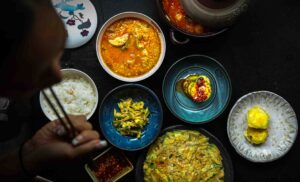
What I’m…
- Watching. Before leaving for Korea, my mom asked me to download several episodes of Queen of Tears onto her phone, so she could binge watch it on the flight. That’s how popular that drama is–even my 75-year-old mother wants to get in on it! Well, if you’re in withdrawal after finishing up that tearjerker, might I recommend It’s Okay to Not Be Okay. You’ll not only recognize the male lead (Kim Soo-hyun), you’ll quickly fall in love with his character. He is a nurse at a mental health facility and a caretaker to his older brother who has autism. He meets a mysterious and rather rude children’s book author and the story unfolds from there…! Watch –>
- Reading. Yes, I’m still on my hardcore sci-fi kick and The Martian by Andy Weir is one of my favorite novels of all time. It’s hilarious, thought-provoking, thrilling, and, at times, very emotional. I found myself laughing out loud and crying–sometimes at the same time! This is how you know the book is good. Read –>
- Loving. This bench scraper is one of my favorite tools in the kitchen. Because I incorporate so many chopped vegetables in my cooking, this handy dandy tool to scoop everything up has been a game changer. Not only that, it makes cleaning up all the crumbs on my cutting board so much easier! Finally, if any of you bake as much as I do, you’ll love this tool! Shop –>
Food & Stories: Every Tuesday in Your Inbox!
Not subscribed to my newsletter yet? Join below! The free Korean Vegan newsletter features my writing and storytelling, plus new recipes and cooking videos, every Tuesday in your inbox. Enjoy! – Joanne
Parting Thoughts.
Life isn’t black and white. Despite what I described above, Korea promises to be filled with a kind of treasure. For this week’s parting thoughts, I leave with you an excerpt from my diary–a journal entry I wrote from Korea in 2019 (some of you may recognize it):
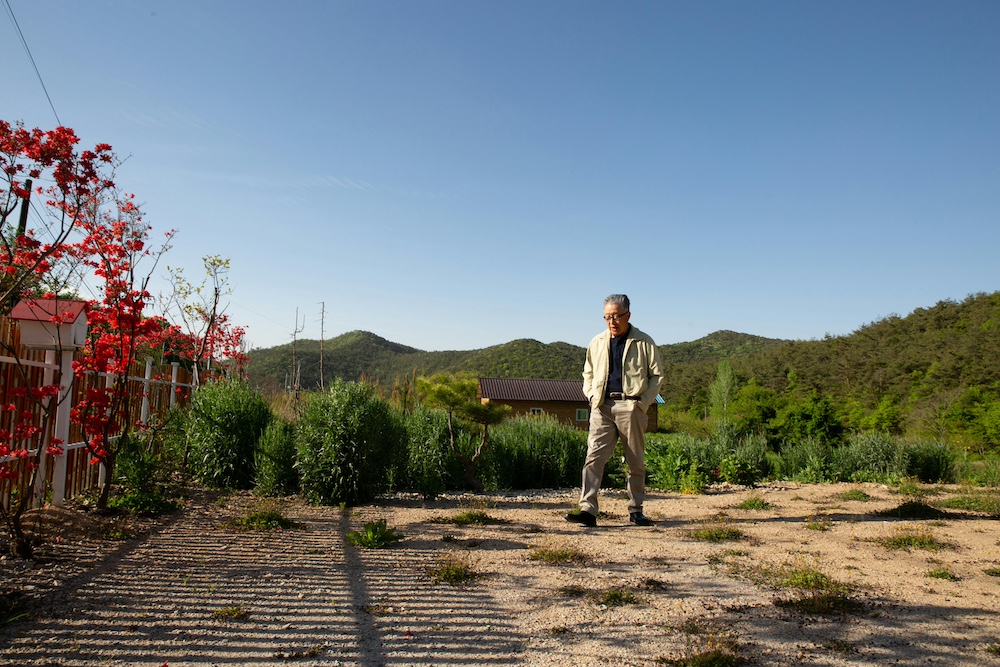
We had driven hours to get to Naejangsan National Park, where Jeongkwanseunim’s temple resided. We pulled into a large parking lot next to what appeared to be a sizable pond. We had packed with us some boochimgae (Korean pancakes) and tteok (rice cake) leftover from the night before, and we decided to refuel before climbing to the top of the sprawling hill. Though my sister in law warned me that the green tteok wasn’t very tasty, they looked too inviting to pass up. I took one bite and instantly recalled that YJ is rarely wrong when it comes to food.
Not wanting to waste it, I canvassed our little troupe to see who might eat my leftovers. Daddy stood at the lip of the pond, his left hand ensconced by the strap of the camcorder I bought him last summer for Rome. A collar of happy trees, their boughs, bright green and heavy with summer’s promise, supplied a shaded spot from which he could consider the dark reflections that shimmered on the surface. Clutching the half eaten tteok, I skipped over to him. Giggling, and before he could say anything, I fit the small rice cake in his empty hand and skipped away, leaving a ribbon of pink laughter in my wake.
He called after me “What? I don’t want this!” But I just laughed harder, reveling in how perfectly the uneaten piece of food fit inside my father’s curved fingers, how green the tteok looked against his walnut skin and beneath the cool eaves of the shifting trees, how I was spending the entire day with my dad in a place that made me feel more like his daughter than any place on earth.
Wishing you all the best,
-Joanne


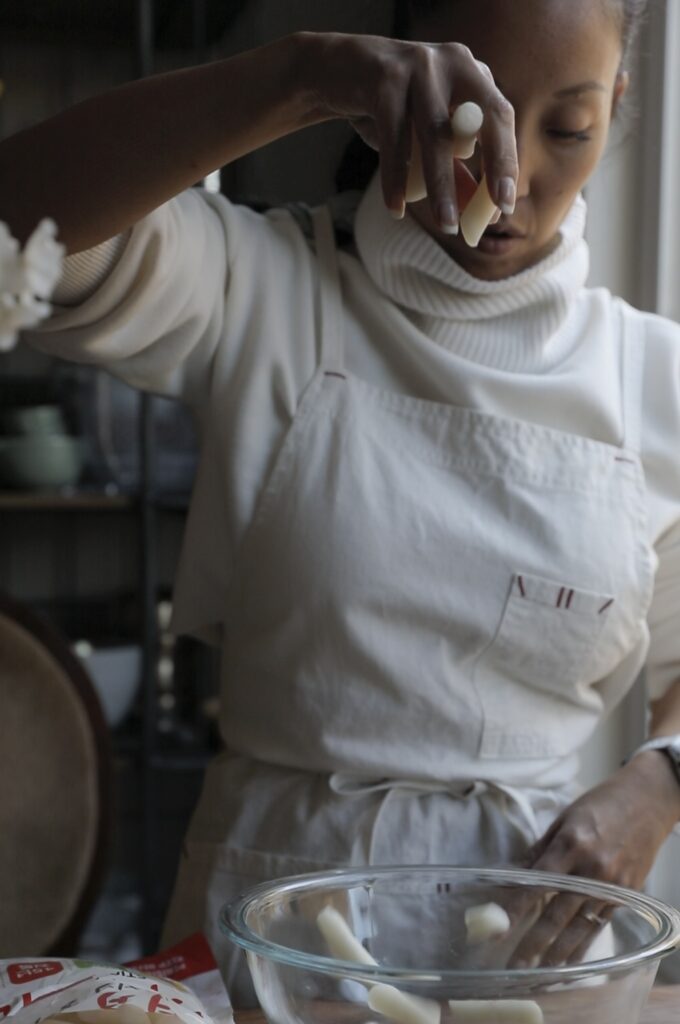
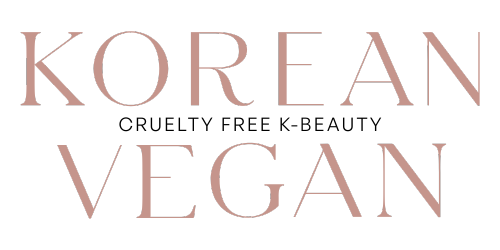

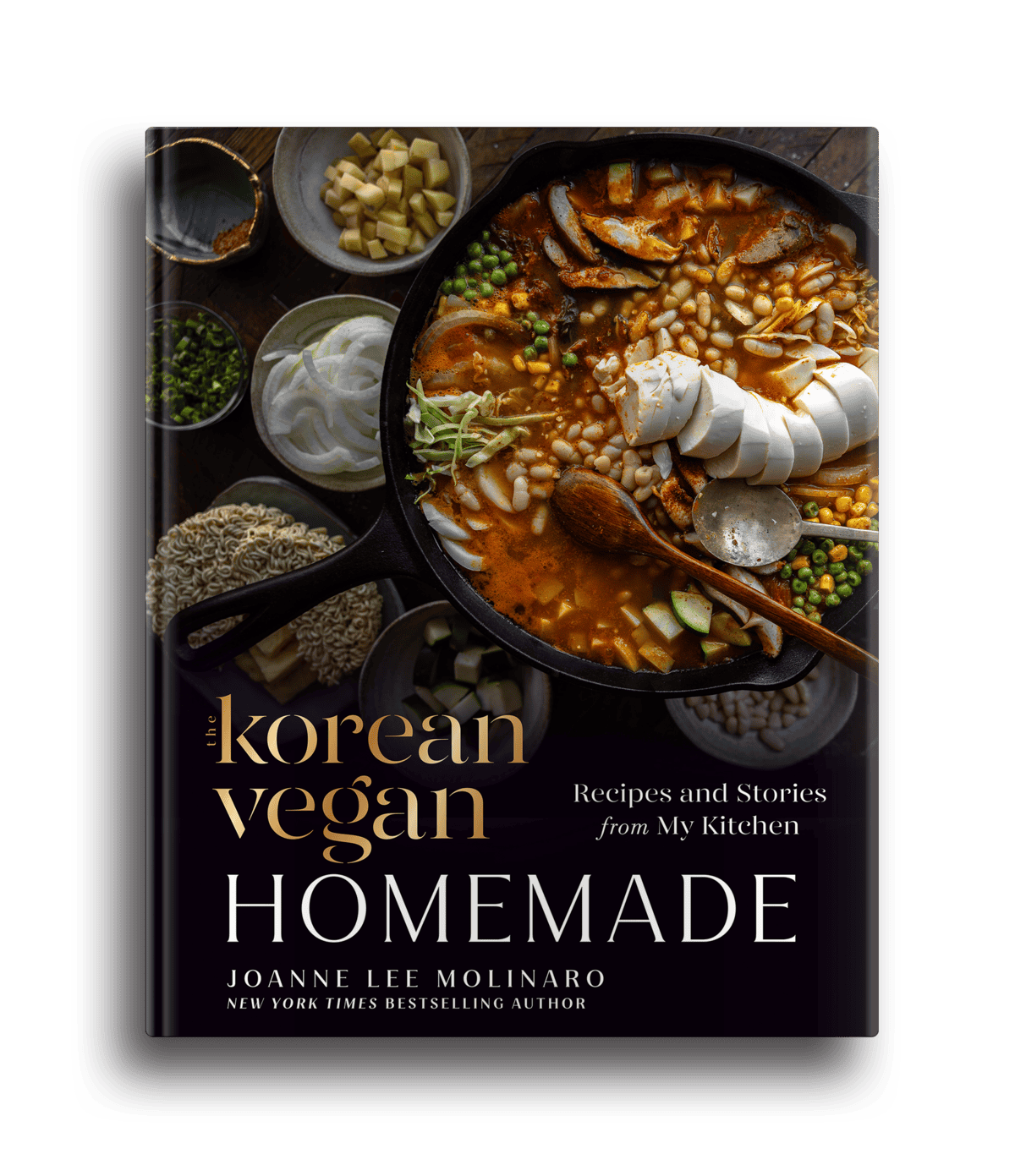
Wow, I hear you on all of this. I’m a size 2-4 and have always been told that I was chubby by Korean family. An uncle once pulled me aside (with good intentions) to tell me that it was ok to be chubby. That some people preferred that. There is so much wrong with that. A) I am a healthy BMI and B) I’m not going to be skinny for somebody else to like me! Oouff. I will be going to a big family reunion soon, too. Part of me is a little worried, my sister hasn’t stopped talking about losing weight before or maybe more so FOR the trip. So sad.
This story resonated with my experience traveling frequently to Korea. While I appreciate many things about Korea and Korean culture, I realized that I don’t love or accept all of it–particularly some of its cultural norms, expectations, and mindsets towards women and girls. Even the Korean government recognizes that when it comes to gender equality, Korea ranks quite low.
What should a body look like after living in another country as a child of immigrants for four decades? To render Roosevelt’s quote in another way…It’s not the critic who counts; the credit belongs to the heroine who’s survived and thrived immigration (navigating a new country; combatting racism, discrimination, bias, misogyny…) and despite it all has the resources and enough “jeong” for the Motherland to return.
Keep speaking your truth, Joanne.
Hey Sy, thanks so much for your comment and for sharing your own story. I love that rendering of Roosevelt’s quote. And Jeong is the perfect word for what we do–not just bravery, but also immense love. <3
I am a little surprised by your post and confused as to the purpose. As a Korean-American I have faced similar discussions regarding weight from family members. While I recognize that outer beauty can be a focus in Korean culture, how is this not true of every culture? Weight and external beauty are certainly big topics in the US and other countries around the world. While I understand your perspective, I wonder why you would hold Korea in such a negative light? Why highlight this? Why not highlight the focus on weight and external looks in all countries. Struggling to find the purpose of this post and a little disappointed to be honest. If you read the thread, you have scared ine traveler with visions of something that is a generalized statement. I think I need to take a break from this for a while. Sorry you had a bad experience, we have all had these types of struggles and it does not just happen in Korea. If you feel this way, maybe you shouldn’t visit or use your ethnicity to highlight your work.
Hi. This brings back memories from my time in Japan and in the Philippines. I spent a year in Tokyo as an exchange student – a long time ago. By our Finnish standards my weight, 53 kg, was just fine for a small woman like me. But in Japan I felt that I was almost overweight. That is what a couple of Filipinos seemed to think, too. I learned that when I visited the Philippines right after my year in Japan.
I already lost weight during my year in Japan. But I lost a lot more when I visited the Philippines because I somehow got giardiasis (from the water or the food, who knows). My weight dropped down to 42 kg and I was very very thin. Way too thin. When I met the relatives of the Filipinos who had met me in Japan, the first thing they said to me was: ”Oh, but you are nice and thin. We heard that you were obese!”
Obese at 53 kg?!
I am back to 53 kg with lots of muscle mass since I exercise a lot. People call me ”slim”. I am a very healthy vegan, but I still have that f e e l i n g that I s h o u l d be well under 50 kg in order to look ”just fine”. And that is because of the early life experience in Asia…
Curiously enough, even though I have never visited South Korea (I would love to), I have the feeling (after watching so many K-dramas and having noticed that most Korean actresses weigh almost 10 kg less than I) that I should lose weight before visiting South Korea. Funny, isn’t it? 🙂
I hope that you have a lovely and insightful time with your family during your visit. And since I have this plan to visit South Korea some time in the future, I am really looking forward to hearing about your experiences at the Korean vegan or vegan friendly restaurants over there.
You’re so accomplished in life, I am so sorry to hear that you’re having trepidation based on the physical body.
Personally it’s your strength of character and amazing skills that would make me feel insecure if anything. I feel like you’d put anyone at ease with your down to earth personality. Hopefully they’ll celebrate your accomplishments instead!
Ugh! I am sorry you had this experience. Brings back my college years in Hawaii, surrounded by very petite japanese girls. My friend who was not your typical tiny Japanese girl constantly obsessed about her „big thighs“. She eas and is beautiful but did not fit into the stereotype… of course plenty of surgeries or eyelid tape to get a „more rounder eye“….ugh! And even though i am white European it still stuck and i still have these tiny bodies in my head as an ideal… yikes, so much messed-upness… have a wonderful time with your family!
Fat shaming is practically an Olympic level sport in Korea. This line made me laugh out loud (it’s obviously a terrible implication). And I can’t believe the subway pic. It looks like it could have been from the Onion. I think certain cultures are just a lot more blunt about how they react to anyone whose looks don’t conform to the norm. To this day, I remember how a teacher in Dubai tried to place me during a discussion with my parents. I was one of two new kids in his class and he ultimately identified me as the medium fat one. I still laugh at it but also recognize how it did leave an indelible impression on my psyche that I have to this day. I hope things have changed in Korea and that you have a lower case t-trauma free trip.
J –
I feel your pain from the opposite end of the spectrum, as I was the shortest and scrawniest kid in my family and in school, until a slightly shorter kid transferred in the 7th grade. I had a growth spurt between ages 17 and 19 that made me average height, but it took years before settling in to a more sedentary lifestyle that I moved from scrawny to less so. My pressures were more external than familial, although it was impossible to visit my Polish grandmother without a full meal and doggie bag.
Best of luck to you on your visit – and be confident in who you are.
I was fat shamed by border control at the ferry from Japan last month. Which was so odd as Japan was the place I was more worried about standing out for not being thin. But in a whirlwind 24 hours, also an older man in Starbucks said I was pretty. Wearing a vest, with tattoo didn’t help me blend in, I felt pretty judged. However that was the only comment in 10 days in Korea. Busan, Jeju & Seoul. I was surprised to see more people of various weights around. I can share my vegan food experiences. Sounds like your planning will pay off, I winged it sometimes to my detriment. Especially in Jeju where restaurants are very spread out and we didn’t have a car. I would return to Seoul, lots of great vegan options.
My weight is my defense against trauma. My mother’s constant emphasis on my weight my appearance was never loving but reflected her own perfectionism and need to have me reflect a perfect image as a reflection on her. Korea therefore is my own personal nightmare embodied in the attitude of an entire country.
That said, Asian countries are clueless to solve the problem their low birthrates are causing for society as a whole. What sane women would want to subject a child to this or increase the intrusive pressure on herself as a mother? All mothers reading this, take a moment to tell your daughter how smart and competent she is. Capable and healthy women raise the world. True beauty radiates from within.
I’m going to Korea in three weeks now with more trepidation. I went twenty years ago and my family said nothing, but I’m an adult and heavier now. At least the language barrier should help!
This post is pretty disheartening for me as a Korean adoptee. You mention everything which prevents adoptees from returning to Korea. The fear of being too fat added along for us the language barrier and darker skin. I have known my biological family in Korea for awhile now…and I thought we had an enjoyable trip to Korea last summer..but after reading this article I think I was just fooling myself into believing that not only my family, but the Korean people were more accepting of people that look like me. I am overweight in America, so it’s pretty obvious that I’m overweight in Korea. After reading this I’m sure that my family was humiliated being seen with me. The irony is that it matters so much being accepted, after Korea essentially sold over 200,000 of us to help get the Korean economy back on it’s feet and they readily take our money when we return to find some connection. Will I ever go back highly unlikely after reading this informative article.
Dear Joanne, I feel your pain. Japanese aunties and grandmas sing the same refrain but with a twist: Ho, how come you so fat? Here I made pie.
I look back and laugh because like you this was so normalised. But it certainly had an impact. As an adult, to this day and probably forever, I don’t feel normal unless I’m underweight, ie my normal weight is 105lbs for my 5´4 in. Oh and it’s totally binary, I’m either normal or fat. Thank you for bringing up this phenomenon. Just recognising that something is not normal creates space for changing perspective. And have a glorious, beautiful trip with your family in a fascinating albeit fattist country ! Your soul sister in surviving trauma by little old ladies ? ??